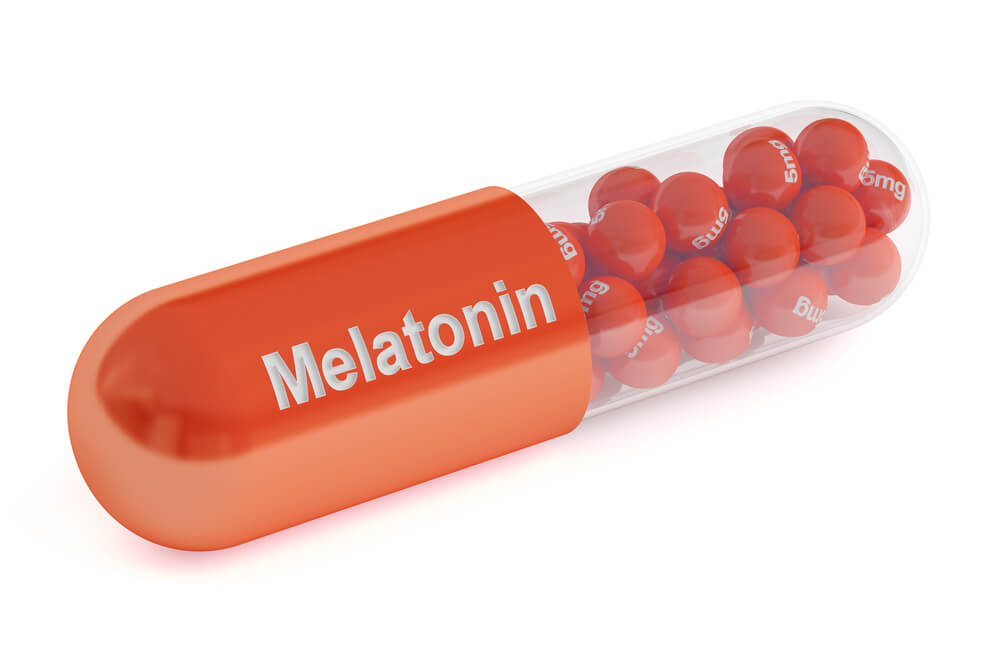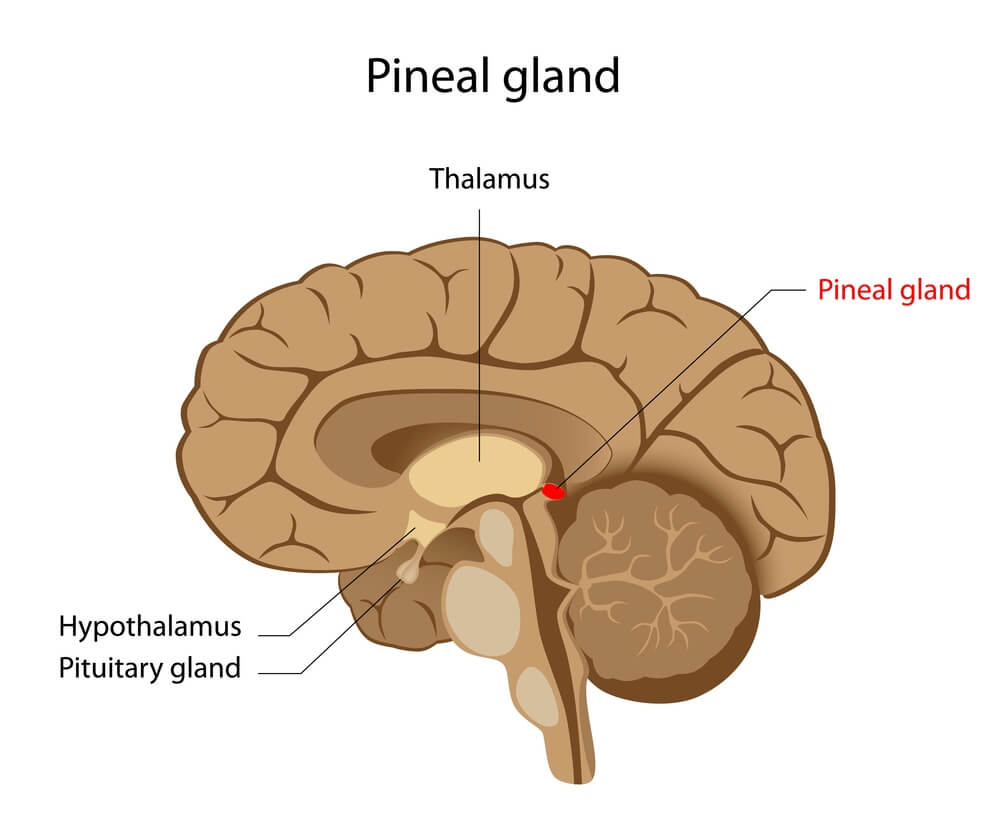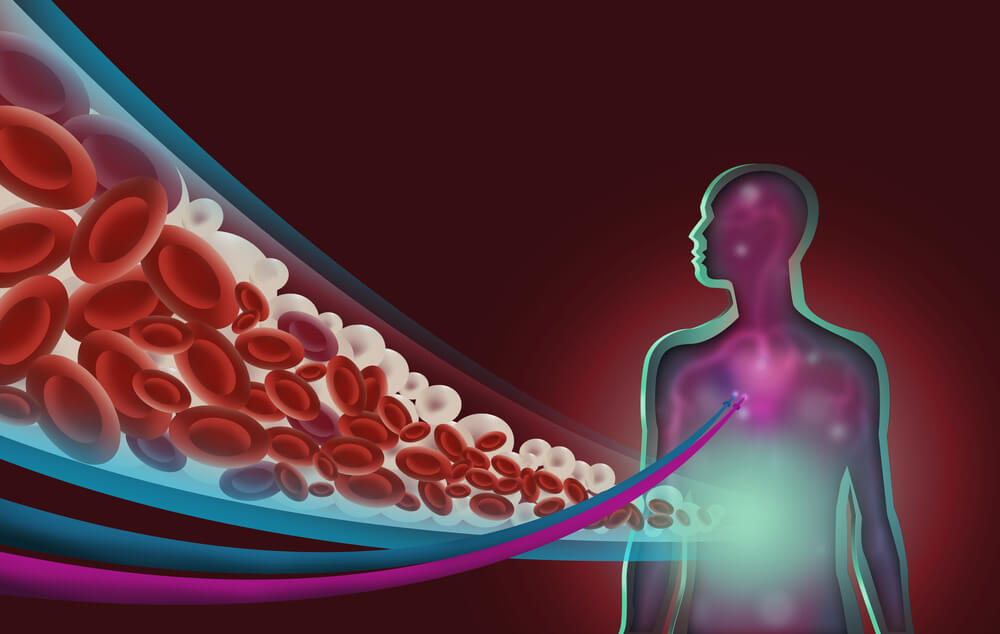You’re sitting in bed, in desperate need of sleep, but your mind races, thinking of what happened in the day and what tomorrow might bring. Today we are going to talk about a supplement that may help you sleep, melatonin.
With your brain chugging along a million miles a minute, going to sleep becomes less and less likely. So, by the time you do finally manage to unplug your mind and you nod off, it feels like sleep itself is but a dream, as you wake up more exhausted and tired than when you climbed into bed.
Most of us go through days like this.
While it illustrates the importance of a nighttime routine, giving your brain enough time to unwind before shutting off for the night, sometimes there is very little you can do about it. Sleeping pills are available, but the idea of it becoming habit forming makes it less than desirable (because who wants to take a pill just go fall asleep every night).
You could go the route of past generations and knock a stiff shot of whiskey back too, but that brings about all sorts of different problems. Also, it’s important to note sleep affects muscle growth.
What about melatonin?
Rumor has it a melatonin supplement can help you sleep, but is it true, and what exactly is it?
Diving a bit deeper into the subject may highlight exactly what you need for those difficult to sleep nights.
What is Melatonin?
Melatonin is more than a supplement you purchase from the health food store.
Melatonin is a hormone produced naturally by the brain in the pineal gland. This hormone, in turn, helps control the wake and sleep cycles of the brain. As melatonin is naturally produced by the brain, it is also found in other organic material you consume on a daily basis, such as vegetables, meats, and grains.
What you consume is considered typically to be a small fraction of the melatonin levels you receive when taking a supplement.
The hormone melatonin begins with the tryptophan amino acid. This is what is often found in food that makes you feel sleepy after consumption. It is then combined with serotonin before reaching the melatonin receptors within your brain. From there, melatonin reaches the eyes and other areas of your body designed to control sleep. This is one reason why your eyes begin to feel heavy as you grow more tired. The eyes are one of the first organs affects by the hormone (Drugs, 2017).
Have you ever wondered why your body begins to feel sleepy right around the same point of time every single day?
While different variables can come into play and alter your sleep schedule, for the most part, you’ll grow tired around the same time and feel the need to wake up at the same time. Yes, some of this is muscle memory and your body adapting to the routine you’ve created. However, your body’s natural body clock aids in this created a schedule. Melatonin production within the brain plays a major role in this.
As it grows closer to your “bed time,” your brain begins to produce higher levels of melatonin, causing you to feel sleepier as your usual sleep time approaches.
Before alarm clocks and other methods for waking up early, the human’s internal clock functioned in a similar pattern to that of the sun, so the brain would increase levels of melatonin as it received less sunlight.
The body still does carry on in similar ways to this pre-cock era. In the winter time, if you live in a region where available sunlight is drastically less, you will begin to feel sleepier earlier on. Of course, as the perceived sleepiness feeling comes earlier, it may force you to battle the desire to fall asleep before you desire.
This is one of the reasons why people develop conditions known as winter depression and seasonal affective disorder (SAD).
Melatonin Production Cycle
Melatonin is released in a cycle throughout the day. It does not instantly increase at night time.
During the daylight hours some of the hormones are released, but it as the afternoon turns to evening it begins to increase. For most people, the hormone hits its peak release point between 11 PM and 3 AM. By the time your body reaches its peak melatonin levels, it releases nearly 10 times more of the hormone than during the low point in the day (Drugs, 2017).
Old Age and Sleeping
Ever wonder why your grandparents seem to be up before the crack of dawn every single morning when you go and visit?
It isn’t because they simply don’t like sleep. It’s because their bodies no longer naturally produce as much melatonin. As the body ages, the body slows down its melatonin levels. It may reach a point where someone produces very little if any at all (WebMD, 2017).
What is a Melatonin Supplement?
Melatonin supplements contain the hormone naturally produced in your brain.
Upon consumption, the supplement dissolves into the blood stream and can assist in helping your body and mind feel tired in a more natural way. The supplement is synthetically made, so the chemical compound is slightly different from what your brain produces.
It is important to not confuse melatonin supplements with vitamins as this is not a vitamin. It is a synthetically manufactured hormone. In the United States, you don’t need a prescription to purchase any strength level of the hormone, although it is always recommended to consult with your doctor before taking an extended dosage.
When are Melatonin Supplements Used?
There is no need for a prescription to purchase the supplement. However, a doctor may recommend picking up the product for a few different reasons.
For starters, if you recently changed work hours to the third shift, or at the very least don’t work the standard 9 to 5 job, you may find it difficult to fall asleep when necessary.
When this occurs, a doctor may tell you to begin taking melatonin supplements until your body can adapt to the new schedule. Eventually, it will adjust to your sleep schedule and alter how and when it produces melatonin, so taking the supplement long term is not necessary.
The supplement can also be used when battling jet lag in order to help reset your internal clock to the time outside. It is used for basic insomnia (those nights where you just can’t fall asleep for whatever reason), and for the blind. If someone has recently experienced blindness in their life, they may find it difficult to sleep as they might be unable to tell the difference between night and day, which can affect the internal clock.
Melatonin, taken at the same time every day, can help correct this.
For any of these conditions, it is important to take the melatonin supplement at about the exact same time, so the body can adjust. Sporadically taking the supplement will not develop the pattern desired for correcting sleep issues.
Some claim melatonin can aid in cancer treatment, although there is very little research when it comes to this. If you or someone you know is currently battling cancer and is interested in using melatonin, it is best to consult a doctor first and see what they say (Drugs, 2017).
How to Take Melatonin
Usually, after taking a melatonin supplement you’ll begin to feel some of the drowsy side effects 30 minutes after.
Taking it immediately before bed may not give you the desired results, so take the supplement an hour or so prior to your bedtime. This gives enough time for it to digest and enter the bloodstream.
Be mindful of the dosage you take of the supplement.
There are different levels available, so don’t just buy the largest dose, assuming it works better. For starters, if you are taking the supplement to aid in jet lag, you only need about .5 mg. It is best to start out at this level and see how your body reacts. If nothing happens or you fail to fall asleep you can increase the dosage amount.
Some people simply need higher levels of melatonin to fall asleep. Dosage can increase all the way to 5 mg, although at a higher level you are more susceptible to side effects, such as feeling groggy the next day or waking up with a headache (Drugs, 2017).
If you battle insomnia, or it is becoming late and you don’t feel tired at all, take anywhere from .1 to .5 mg a half hour before your desired bedtime. By taking a lower dosage it should help aid your current melatonin hormone production without affecting how you wake up.
If you need to take the supplement due to a shift work sleep problem (such as suddenly working the third shift), you want to take a higher dosage around 30 minutes before when you want to fall asleep on the new schedule. The higher dosage can be anywhere from 1.8 to 3 mg.
Again it is almost always better to start out on the smaller dosage and work your way up until you find a happy medium.
Who Should Avoid Taking Melatonin
Do you have a friend who swears by giving their children melatonin at night?
Truth is, that’s probably not a good idea. Melatonin production is highest at a younger age (which is why kids can sleep for endless amounts of time). Supplementation to their natural level of hormone production is simply not necessary. If you have a child finding it difficult to sleep, consult your pediatrician before starting them up on melatonin.
If you suffer from any kind of health condition or are currently on medication, you may not be allowed to take melatonin.
If you battle depression, suffer from diabetes, have any kind of blood clotting disorder, use sedatives, on medication designed to prevent organ transplant rejection, experience seizures or take a blood thinner, melatonin should not be taken. If you have any other health conditions or are on other medications, always consult your doctor ahead of time (WebMD, 2017).
Possible Side Effects And What to Avoid
Side effects from taking melatonin are more common in children than adults as their body may not be accustomed to the sudden injection of an additional hormone.
With that said, side effects can affect anyone. Bedwetting is one of the top child side effects but does not affect adults as frequently. Beyond this, dizziness, nausea, headaches and diarrhea can affect both children and adults. Usually, this is a sign the dosage is too high.
It is not recommended to take high dosage levels (more than 5 mg) or to continually take the supplement for long periods of time. If you do, you may suffer additional side effects, including feeling depressed, a change in blood pressure, daytime drowsiness, loss of appetite and an increase in back and joint pain.
When using melatonin, it is important to not drive machinery for at least four hours (or more) after taking the supplement.
Do not drink alcohol with the supplement and do not consume anything with caffeine in it (such as coffee, tea or any other soft drink) as the stimulant may counter-react to the melatonin in your body, causing adverse effects in the blood.
If you’re pregnant, consult your doctor before taking the supplement. There have not been extended studies done on the impact melatonin might have when giving birth (Drugs, 2017).
Conclusion
Whether battling seasonal depression or you just have the occasional night where you don’t feel tired, melatonin is a natural hormone produced in your body that can be aided by a synthetic supplement.
Generally, it can help with your sleep, although it usually is not desirable to consume the supplement on a daily basis. Your body produces melatonin naturally, so if you add elevated levels of the hormone to your body on a regular basis, your body may adapt and become accustomed to these elevated levels.
You can develop a dependency on just about anything, including health supplements. So while it is perfectly safe to take, it is always best to take in moderation.
-Terry Asher
Terry Asher
Latest posts by Terry Asher (see all)
- Better Family – Product Review Liquid Daily 2 oz - Dec 16, 2024
- Post-Workout Recovery: The Key to Optimal Performance - Nov 25, 2024
- Pre-Workout Supplements – Everything You Need To Know - Nov 18, 2024














Terry
I have been taking Melatonin (daily) for more than 20 years. So far at age 82 no side effects and at age 82 sleep like a baby. As you know Melatonin is recommended by certified anti-aging medical doctors.
+++++++++++++++
Richard,
Thanks for sharing your experience with the supplement. Glad it has worked out so well for you!
-Terry Asher
Again it is almost always better to start out on the smaller dosage and work your way up until you find a happy medium. Thank you for the info
Agreed and very good advice…
Thanks for stopping by!
-Terry Asher
Your post is very good and meaningful. How long will it take you to write and post? thank you for sharing
I feel it interesting, your post gave me a new perspective! I have read many other articles about the same topic, but your article convinced me!
[…] happens because your pineal gland doesn’t produce the right amount of melatonin you need for a functioning circadian rhythm, which is the system that regulates your night time […]
very excellent content this blog…..thanks
Your article is great, thank you for sharing them!
The most informative article.
Everyone desires a toned and healthy body.